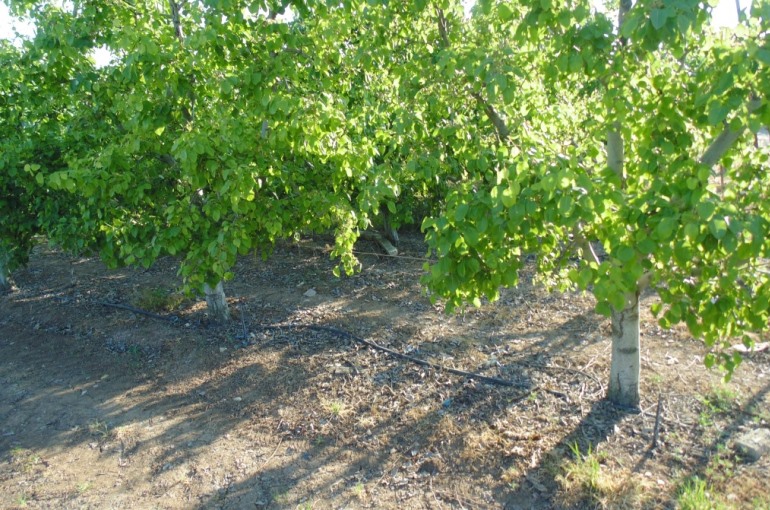Pear Tree Soil Requirements and Preparation

This post is also available in:
This post is also available in:
![]() Español (Spanish)
Español (Spanish) ![]() Français (French)
Français (French) ![]() Deutsch (German)
Deutsch (German) ![]() Nederlands (Dutch)
Nederlands (Dutch) ![]() العربية (Arabic)
العربية (Arabic) ![]() Türkçe (Turkish)
Türkçe (Turkish) ![]() 简体中文 (Chinese (Simplified))
简体中文 (Chinese (Simplified)) ![]() Italiano (Italian)
Italiano (Italian) ![]() Ελληνικά (Greek)
Ελληνικά (Greek) ![]() Português (Portuguese (Brazil))
Português (Portuguese (Brazil)) ![]() polski (Polish)
polski (Polish)
Pear Tree Soil Conditions and Preparation
The pear tree can thrive in an average soil with pH close to 7, provided that is well drained and free from stagnated water. However, maximum yields are reported on fertile loamy sandy soils with pH ranging from 6 to 7. Many commercial apple and pear farmers add lime to the soil before planting their trees, in order to fix pH (ask a licensed agronomist). First, we have to carefully plow the field in depth of at least 20 inches (50cm) and to remove all the weeds. Then, we can add about 10-20 tons manure per hectare and then plow again superficially. Keep in mind that 1 ton = 1000 kg = 2.200 lbs. and 1 hectare = 2,47 acres = 10.000 square meters.
When cultivating apple or pear trees commercially, cover crops (which are in most cases low standing grasses) have been reported to be beneficial, if not necessary in some cases. Cover crops tend to reduce soil erosion during heavy rains or wind storms. They also improve soil aeration and orchard stability, while some of them fix nitrogen. Finally, they work as a filter for trees’ irrigation and they adjust orchard temperature. Alfalfa, vetch and legumes have been found to be beneficial when they are planted as cover crops in fruit farms. In United States, perennial clovers are often used as cover crops in pear orchards. Read more on Cover Crops for Orchards
You can enrich this article by leaving a comment or photo of your pear orchard soil condition and texture.
2.) How to grow a Pear Tree from seed
3.) Growing Pear Trees in pots
4.) Growing Pear Trees commercially
5.) Pear Tree Climate Conditions
6.) Pear Tree Soil Requirements and Preparation
7.) Pear Tree Propagation and Pollination
9.) Pear Tree Water Requirements
10.) Pear Tree Fertilizer Requirements
12.) Pear Tree Harvest & Yields
13.) Pear Tree Pests & Diseases
Do you have experience in Pear Tree cultivation? Please share your experience, methods and practices in the comments below. All the content you add will be soon reviewed by our agronomists. Once approved, it will be added to Wikifarmer.com and it will influence positively thousands of new and experienced farmers across the world.








































































